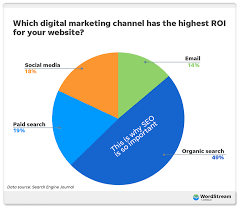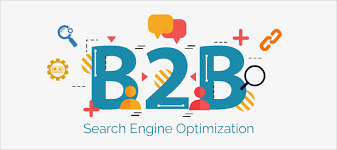Maximise Your Product Visibility with Amazon Keyword Ranking Strategies
The Importance of Amazon Keyword Ranking
When it comes to selling products on Amazon, visibility is key. With millions of products listed on the platform, standing out from the competition can be a daunting task. This is where Amazon keyword ranking plays a crucial role in helping your products get discovered by potential customers.
Understanding Amazon Keyword Ranking
Amazon keyword ranking refers to the position at which your product appears in search results when customers use specific keywords to find relevant products. The higher your product ranks for relevant keywords, the more likely it is to be seen and clicked on by shoppers.
Optimising Your Keywords
To improve your Amazon keyword ranking, it’s essential to conduct thorough keyword research. Identify relevant keywords that are commonly used by customers searching for products similar to yours. Incorporate these keywords strategically into your product title, description, bullet points, and backend search terms.
Monitoring and Adjusting
Monitoring your Amazon keyword ranking is crucial to track the effectiveness of your keyword optimisation efforts. Regularly check where your product ranks for target keywords and make adjustments as needed. Experiment with different keywords and monitor how these changes impact your product’s visibility.
Enhancing Product Listings
In addition to optimising keywords, enhancing other aspects of your product listing can also positively impact your Amazon keyword ranking. High-quality images, compelling product descriptions, positive customer reviews, and competitive pricing all contribute to making your product more attractive to both customers and Amazon’s search algorithm.
The Bottom Line
Amazon keyword ranking is a powerful tool that can significantly boost the visibility of your products on the platform. By strategically selecting and optimising keywords, monitoring performance, and continuously refining your approach, you can improve your rankings and increase sales. Invest time and effort into mastering Amazon keyword ranking, and watch as your products rise above the competition.
Essential FAQs on Boosting Your Amazon Keyword Ranking and Visibility
- 1. What is Amazon keyword ranking?
- 2. How important is Amazon keyword ranking for product visibility?
- 3. How can I improve my Amazon keyword ranking?
- 4. What tools can help me with Amazon keyword research?
- 5. How often should I monitor my Amazon keyword ranking?
- 6. What impact does product listing optimisation have on keyword ranking?
- 7. Are there specific strategies for targeting long-tail keywords on Amazon?
1. What is Amazon keyword ranking?
Amazon keyword ranking on Amazon refers to the position at which a product appears in search results when customers use specific keywords to find relevant products. Essentially, it determines where your product ranks in relation to other similar products when customers search for specific terms on the platform. The higher your product ranks for relevant keywords, the more likely it is to be seen and clicked on by potential buyers, ultimately impacting your product’s visibility and sales potential on Amazon. Understanding and optimising Amazon keyword ranking is essential for sellers looking to enhance their product’s discoverability and competitiveness within the marketplace.
2. How important is Amazon keyword ranking for product visibility?
Amazon keyword ranking plays a vital role in determining the visibility of products on Amazon. The position at which a product appears in search results directly impacts its discoverability by potential customers. A high Amazon keyword ranking increases the likelihood of attracting clicks and ultimately driving sales. By strategically optimising keywords and regularly monitoring rankings, sellers can enhance their product visibility, stand out from competitors, and maximise their chances of reaching a wider audience on the platform.
3. How can I improve my Amazon keyword ranking?
To enhance your Amazon keyword ranking, it is essential to conduct thorough keyword research to identify relevant keywords that resonate with your target audience. Incorporate these keywords strategically into your product listings, including titles, descriptions, bullet points, and backend search terms. Regularly monitor your keyword performance and make adjustments as needed based on the insights gained. Additionally, focus on enhancing other aspects of your product listings such as high-quality images, compelling descriptions, positive reviews, and competitive pricing to improve overall visibility and attract more customers. By consistently refining your keyword strategy and optimising various elements of your listings, you can effectively boost your Amazon keyword ranking and increase the discoverability of your products.
4. What tools can help me with Amazon keyword research?
When it comes to conducting effective Amazon keyword research, there are several tools available to assist sellers in identifying relevant keywords and improving their product visibility. Popular tools such as Jungle Scout, Helium 10, and MerchantWords offer comprehensive keyword research features that enable sellers to discover high-volume keywords, analyse competitor strategies, and track keyword performance over time. These tools provide valuable insights that can help sellers optimise their product listings and enhance their Amazon keyword ranking, ultimately leading to increased visibility and sales on the platform.
5. How often should I monitor my Amazon keyword ranking?
Regular monitoring of your Amazon keyword ranking is essential to stay on top of your product’s visibility on the platform. As search trends and algorithms constantly evolve, it is recommended to monitor your keyword ranking regularly to assess the effectiveness of your SEO strategies. Depending on the competitiveness of your niche and the frequency of changes in search trends, monitoring weekly or bi-weekly can provide valuable insights into how your keywords are performing and whether adjustments are needed to maintain or improve your rankings. By keeping a close eye on your Amazon keyword ranking, you can adapt quickly to changes and maximise the visibility of your products to potential customers.
6. What impact does product listing optimisation have on keyword ranking?
Product listing optimisation plays a significant role in determining keyword ranking on Amazon. By strategically optimising product listings with relevant keywords, compelling descriptions, and high-quality images, sellers can improve their chances of ranking higher in search results. A well-optimised product listing not only enhances the visibility of the product but also increases its relevance to specific search queries. Ultimately, effective product listing optimisation can lead to improved keyword ranking, driving more traffic to the product page and increasing the likelihood of conversions.
7. Are there specific strategies for targeting long-tail keywords on Amazon?
When it comes to targeting long-tail keywords on Amazon, specific strategies can be employed to enhance product visibility and attract relevant customers. Long-tail keywords are longer, more specific search terms that often indicate higher purchase intent. To effectively target long-tail keywords on Amazon, sellers can conduct in-depth keyword research to identify niche phrases that align with their products. Incorporating these long-tail keywords strategically into product titles, descriptions, and backend search terms can help improve search visibility and reach potential customers who are more likely to convert. By focusing on long-tail keyword optimisation, sellers can increase their chances of ranking higher in search results and driving targeted traffic to their products.








